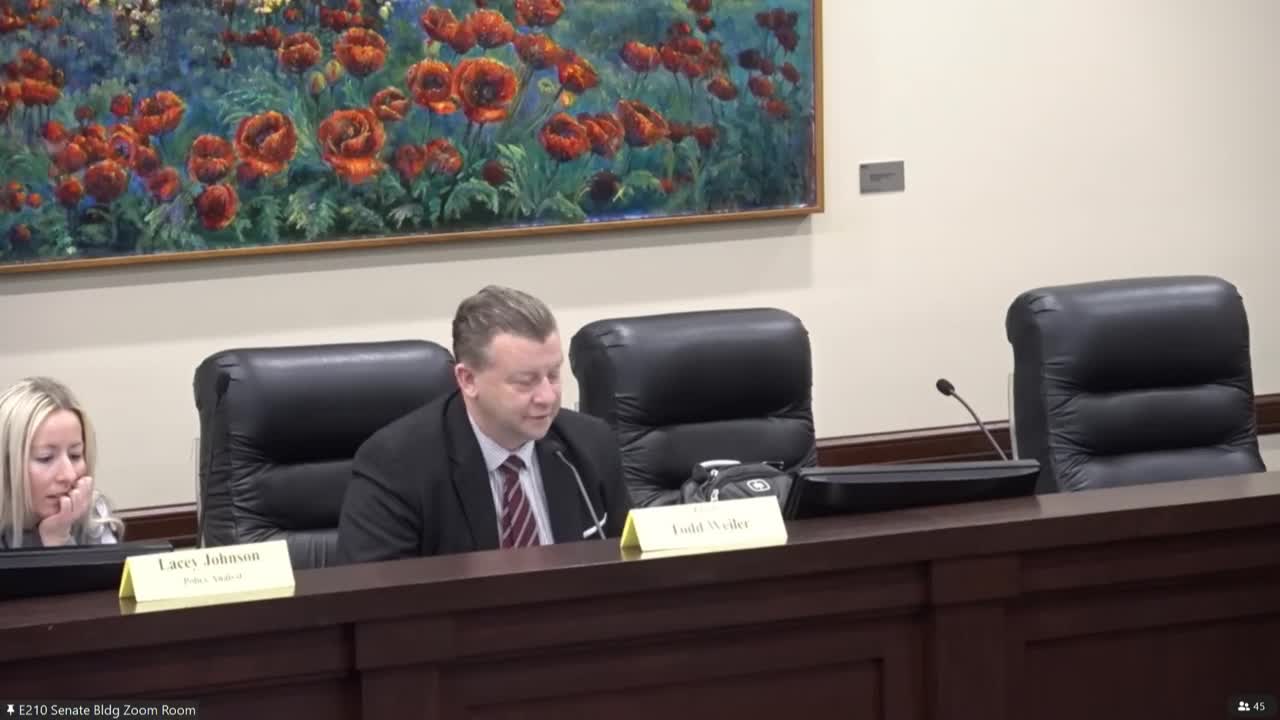Committee approves expedited review for auditor privilege disputes; sponsors, auditors and AG spar over process
Get AI-powered insights, summaries, and transcripts
Subscribe
Summary
Lawmakers advanced a substitute to SB 154 to create a fast arbitration process for disputes over asserted attorney‑client privilege in legislative audits; the legislative auditor and sponsor said it will curb over‑designation, while the attorney general's office urged use of courts and stressed protections for privilege.
The Senate Judiciary, Law Enforcement and Criminal Justice Standing Committee voted unanimously to advance Senate Bill 154 after adopting a first substitute and an amendment that narrow the bill’s procedures for resolving privilege disputes arising in legislative audits.
Sponsor Senator Daniel Brammer said the bill addresses an increase in claims of attorney‑client privilege that, in his view, have impeded the legislative auditor’s ability to report to the legislature. He noted the constitutional basis for the auditor’s role — Article 6, Section 33 — and described auditors’ concerns that privilege and withheld documents have delayed audits and limited oversight.
“I'm not going to put up with over designation anymore,” Brammer said, describing a proposed fast-review process: an independent arbitrator would review privilege logs and disputed documents on an expedited timetable and decide whether material must be produced to auditors. Under the substitute, the arbitrator’s review is intended to occur within a short window, and the losing party would pay the arbitrator fees when claims were found to be improper.
Kate Minche of the Legislative Auditor’s Office testified that the office has seen an uptick in privilege claims over the past three to four years and that delays have lengthened audits and reduced the legislature’s ability to obtain accurate information. “If we don't have information, we can't make the proper fact‑finding conclusions to the legislature,” she said.
Representatives from the attorney general’s office — Deputy Attorney General Douglas Crapo and Solicitor General Stan Purser — urged caution. They said existing tools, such as privilege logs and the legislative subpoena process (Title 36, Chapter 14, section 5), already allow courts to review privilege claims. Purser recommended using courts — possibly on an expedited docket — rather than an arbitrator, arguing that judicial decisions would build case law and public confidence. He raised concerns about provisions that could be read as favoring the auditor’s access when doubt exists and noted potential federal evidence-law complications.
Other witnesses included representatives of the Utah State Bar, the League of Cities and Towns, and interested stakeholders who generally recommended further technical changes rather than opposing the bill’s core goal. The committee also heard that some audits involve entities with independent funding sources, making cooperation more difficult.
After discussion, the committee voted to favorably recommend first substitute SB 154 as amended. Sponsor Brammer and Legislative Auditor representatives said the substitute preserves legitimate privilege while creating a quicker path for the legislature to resolve disputed claims.
Next steps: the bill, as amended, will proceed to the full Senate with a committee recommendation. Committee action recorded the recommendation as approved unanimously (6–0).
